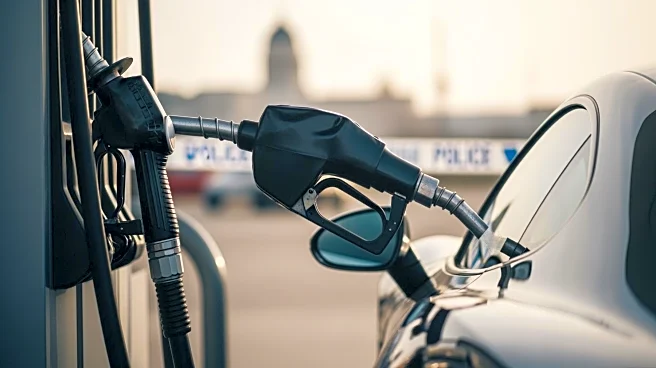What's Happening?
Costco's premium gasoline offerings have sparked interest among high-performance vehicle owners due to the octane ratings provided at their stations. According to Costco's Frequently Asked Questions page,
their fuel ratings are typically 87 octane for regular gasoline and 91 octane for premium gasoline. This information is crucial for owners of high-performance cars, such as the Bugatti Chiron, which require higher octane levels to maximize engine performance. The Chiron, for instance, can achieve its full 1,479 horsepower potential with 93 octane fuel, but using 91 octane limits the engine to 1,200 horsepower to prevent detonation. The distinction between octane ratings is significant for vehicles with high compression or forced induction engines, as lower octane fuels can ignite unevenly under high pressure and heat, leading to engine damage.
Why It's Important?
The octane rating of gasoline is a critical factor for high-performance vehicle owners, as it directly affects engine performance and longevity. Vehicles with high compression engines or those equipped with turbochargers or superchargers require higher octane fuel to operate efficiently and safely. Using fuel with insufficient octane can lead to engine knocking, which can cause significant damage over time. For luxury and high-performance car owners, understanding the octane ratings available at fuel stations like Costco is essential to ensure their vehicles run at optimal performance levels. This issue also highlights the broader implications for fuel retailers in catering to the needs of diverse vehicle types, potentially influencing consumer choices and fueling habits.
What's Next?
High-performance vehicle owners may need to conduct further research to identify Costco locations that offer 93 octane fuel, as the availability of this higher octane rating is not guaranteed at all stations. This could lead to increased demand for more consistent high-octane fuel offerings across retail locations. Additionally, as consumer awareness of octane ratings grows, fuel retailers might face pressure to provide clearer information and more options to meet the needs of various vehicle types. This could also prompt discussions within the automotive and fuel industries about standardizing octane ratings to better serve high-performance vehicle owners.
Beyond the Headlines
The discussion around octane ratings and their impact on vehicle performance also touches on environmental and regulatory considerations. Higher octane fuels often contain additives that can have environmental implications, and the push for higher performance fuels may intersect with regulatory efforts to reduce emissions and promote cleaner energy sources. This dynamic could influence future policy decisions and technological advancements in both the automotive and fuel industries.











